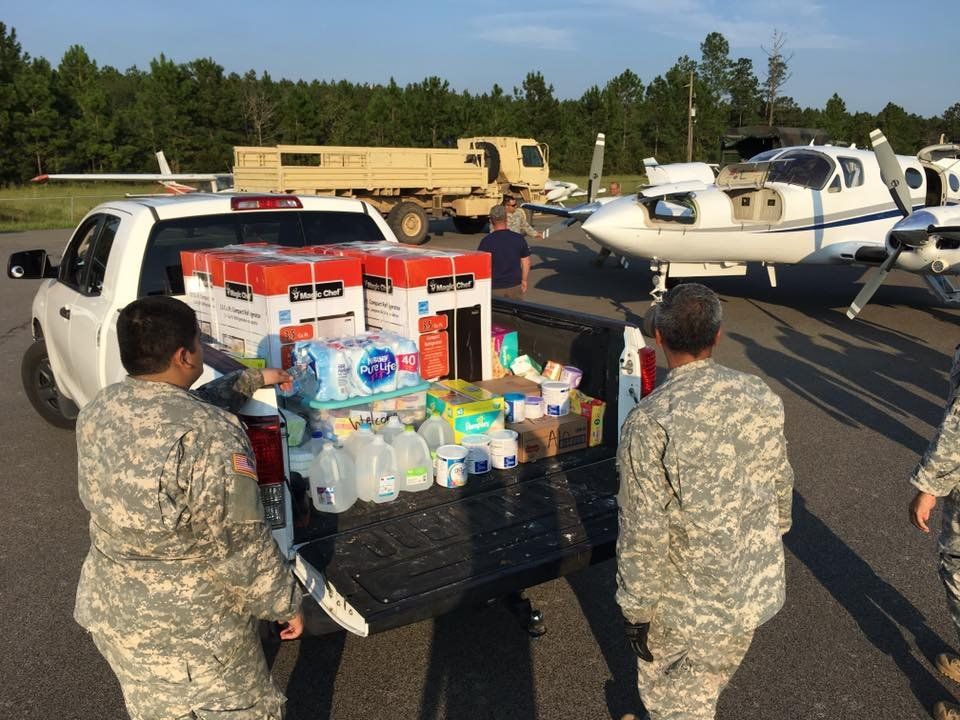
Doug Jackson didn’t set out to found the largest private disaster airlift operation in history, but Operation Airdrop took on a life of its own. Jackson, who owns a vehicle trailer dealership, was using some of his trailers to drive relief supplies to the Gulf Coast when he got the idea to work with a fellow pilot and friend to coordinate relief flights by general aviation pilots. Twelve days ago, Jackson was organizing missions on his cellphone with a notepad between flights, when the Operation Airdrop command center spontaneously self-organized.
The Operation Airdrop command center collects data from pilots on payload capability, relief organizations on supplies needed, and donation depots on supplies available. Missions are planned in the afternoon, so pilots arrive at the airport the next morning to find their cargo waiting on a pallet, appropriated weighted for their aircraft capacity, and a recipient expecting those particular supplies at the destination. In the command center, “we have an air traffic controller who works the Tower at Love Field, we have a former C-130 driver, we have a loadmaster, we have flight instructors and we have IT specialists,” says Jackson. Most amazingly, Jackson told AVweb, they just showed up wanting to help: “There wasn’t really anybody in charge. Everybody knew their job, no one fought, they just did their job when it needed to be done. That’s the part that’ll stick with me for the rest of my life.”
In total, Operation Airdrop organized over 500 sorties moving more than a quarter million pounds of supplies by air. More than 200 pilots and aircraft, based as far away as Arizona and Iowa, flew Operation Airdrop missions with a 100% completion rate. Operation Airdrop has ceased flights into Texas, but Jackson isn’t back to his day job. Jackson is working with the operator of a King Air fleet to move Salvation Army personnel from Texas to South Florida where they’re now more urgently needed. Jackson hopes people will remember the role played by general aviation in disaster relief on the Gulf Coast this summer. “In our five hundred plus flights, we didn’t get a single noise complaint.”


































